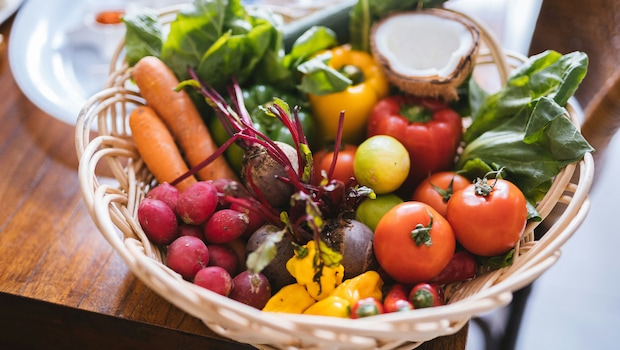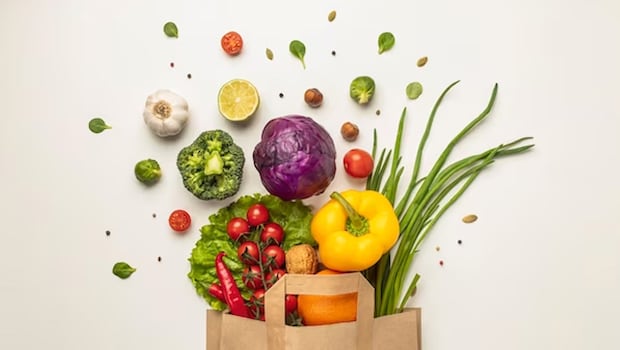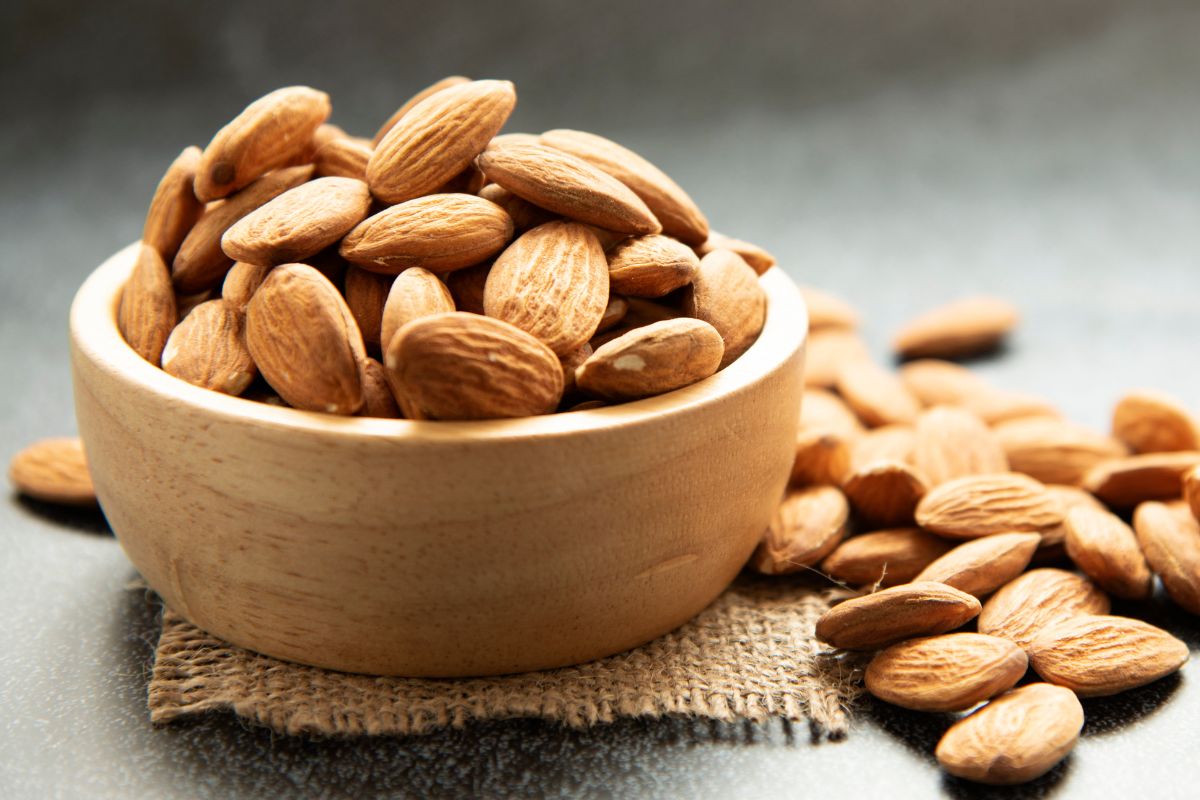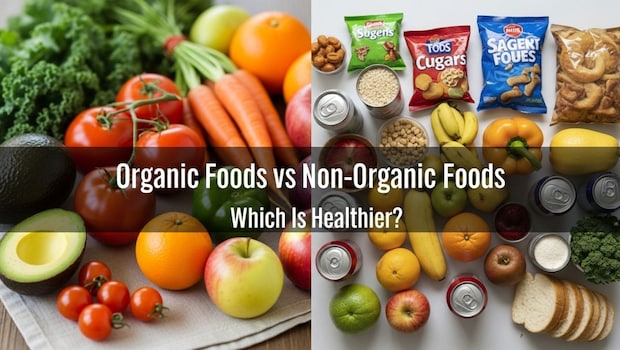Walk through any grocery store today, and you'll see shelves full of products proudly labelled 'organic.' From fruits and vegetables to cereals and snacks, the trend has caught everyone's attention. Many people believe organic foods are cleaner, safer and better for the planet, while others feel they're simply overpriced versions of the same thing. With so many opinions floating around, it's easy to wonder what the real difference is. Are organic foods truly healthier or is it just clever marketing? Let's break it down in a simple way.
Also Read: 5 Key Things To Consider When Buying Organic Fruits And Vegetables
What Sets Organic And Non-Organic Food Apart:
1. How They're Grown
Organic foods are grown without synthetic pesticides, fertilisers or genetically modified seeds. Farmers use natural methods like compost and crop rotation to keep the soil healthy. Non-organic foods, meanwhile, use modern farming techniques to grow crops faster and in larger quantities, which can leave some chemical residues behind, though usually within safe limits.

Photo Credit: iStock
2. Nutritional Value
You might assume organic foods are packed with more nutrients, but research shows the difference is often small. Organic fruits and veggies can have slightly higher levels of certain antioxidants, but both types provide similar vitamins and minerals. The key is to eat a variety of fresh, seasonal produce that matters more than the label.
3. Pesticide Exposure
Many people choose organic foods to avoid pesticides and that's fair. Organic produce generally contains fewer chemical residues. However, even conventional foods are tested for safety and usually stay within government-approved limits. If going fully organic isn't possible, simply washing or peeling fruits and vegetables can reduce residue significantly.
4. Impact On The Environment
Organic farming tends to be kinder to the planet. It keeps the soil fertile, supports biodiversity and reduces water pollution. Non-organic farming, while more productive, can strain the environment due to heavy fertiliser and pesticide use. Choosing organic, even occasionally, supports sustainable practices that protect natural resources in the long run.
5. Cost And Accessibility
Organic food can be expensive because it's harder to grow and has lower yields. That doesn't mean non-organic options are bad - far from it. If you're on a budget, you can mix things up: buy organic for thin-skinned fruits like apples or strawberries, and go non-organic for items you can peel, like bananas or avocados.
Also Read: Steaming Vs Boiling Vegetables: Which Cooking Method Is Really Healthier?

Photo Credit: iStock
Which Is Better: Organic Or Non-Organic Foods?
The truth is, there's no absolute winner. Organic foods are great if you want to lower your exposure to pesticides and support eco-friendly farming, but they can be costly and harder to find. Non-organic foods, on the other hand, are just as nutritious, widely available and strictly regulated for safety. Just make sure to get them through a trusted vendor. The healthiest choice isn't about the label, it's about eating a balanced diet full of fruits, vegetables, whole grains and lean proteins.
So, whether organic or not, focus on freshness, variety, and moderation because that's what truly matters for your health.






